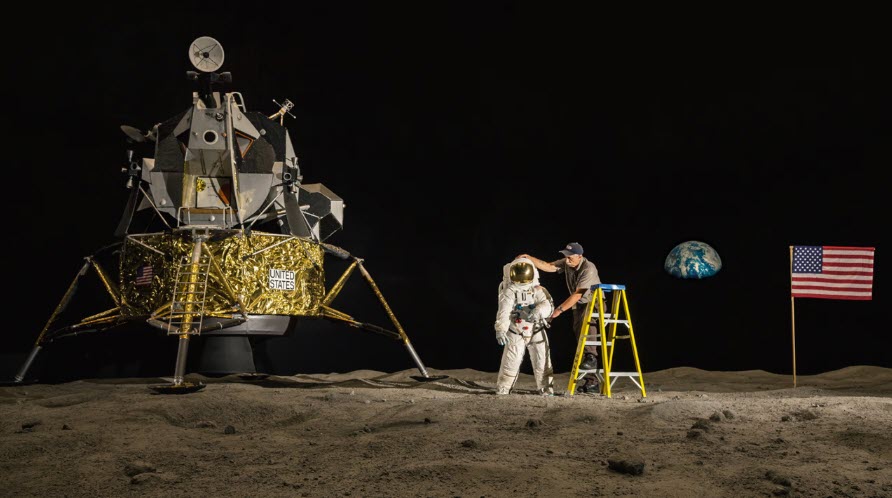대구외고 2학년 기말고사 대비(The Age of Disbelief)-(4)
대한민국 1% 영어강사, 찍신 이상엽 쌤은 내신과 수능에 최적화된 실전문제를 제공합니다. 이상엽 쌤은 대구외고 수험생들을 위해 선생님들의 출제경향을 정확히 분석해 맞춤예상 문제를 제공합니다. 본 문제에 대한 궁금한 점 또는 영어가 어렵고 고민이면, 010-2818-6994로 연락주세요.
The Implications of Doubt
[28~36] 다음 글을 읽고, 물음에 답하시오.
[P] Doubting science has consequences. The anti-vaccine movement, for example, has been going strong since the respected British medical journal the Lancet published a study in 1998 linking a vaccine to autism. Although the article was discredited, the notion of a vaccine-autism connection has been endorsed by celebrities and reinforced through Internet sources. This has implications for the “herd immunity” of populations. When a significant portion of a population is vaccinated, it provides a measure of protection for individuals who have not developed immunity. Increasing vaccine skepticism threatens to undermine the herd immunity of communities against diseases such as whooping cough and measles.
[Q] Investigations into the “science communication problem” have given us insights into how people decide what to believe—and why they so often don’t accept the scientific consensus. It’s not that they can’t grasp it, says Kahan; it’s because of confirmation bias—the tendency of people to use scientific knowledge to reinforce beliefs that have already been shaped by their worldview. Meanwhile the Internet has made it easier than ever for climate skeptics and doubters of all kinds to find their own information and experts. Gone are the days when a small number of powerful institutions—elite universities, encyclopedias, major news organizations—served as gatekeepers of scientific information. The Internet has democratized information, which is a good thing, but along with cable TV, it has made it possible to live in a “filter bubble” that lets in only the information you agree with.
[R] How to penetrate this bubble? How can scientists convince skeptics? Throwing more facts at people may not be enough. Liz Neeley, who helps train scientists to be better communicators, says that people need to hear from believers they can trust, who share their fundamental values. She has personal experience with this: Her father is a climate change skeptic and gets most of his information on the issue from conservative media. One day she confronted him: “Do you believe them or me?” She told him she believes the scientists who research climate change, and knows many of them personally. “If you think I’m wrong,” she said, “then you’re telling me that you don’t trust me.” Her father’s position on the issue softened—but it wasn’t the facts that did it.
28. 윗글의 제목으로 가장 적절한 것은?
① The Internet’s Role in Shaping Modern Beliefs About Vaccines
② Herd Immunity and Confirmation Bias in Digital Information Ecosystems
③ Bridging the Trust Gap: Overcoming Science Skepticism Through Shared Values
29. According to paragraph P, the anti-vaccine movement was started by .
① a celebrity being diagnosed with autism after getting vaccinated
② individuals who did not develop immunity after getting vaccinated
③ a study linking autism to vaccination published in a medical journal
④ skeptics undermining herd immunity of preventable diseases
30. According to the passage, what is confirmation bias?
a. an attitude of only listening to evidence that supports your worldview
b. a movement about autism that was started in 1998
c. the belief that scientific consensus is faked
d. a movement to democratize information
31. Which of the following opinions is Liz Neeley most likely to agree with?
a. The best way to convince skeptics is to get someone they trust speak to them.
b. Skeptics don’t believe in climate chance because they don’t understand the science.
c. There are skeptics because scientists have done a poor job of explaining themselves.
d. Skeptics can be convinced if they are presented with more facts and evidence.
32. What type of figurative language is used in paragraph R?
a. personification
b. hyperbole
c. anecdote
d. alliteration
33. According to the author, the “science communication problem” mentioned in paragraph Q is caused by the fact that .
a. People lack access to scientific education
b. Scientific consensus is inherently untrustworthy
c. Elite institutions deliberately suppress alternative viewpoints
d. Confirmation bias leads individuals to reinforce preexisting beliefs, and the internet enables selective exposure to aligned information
34. 윗글의 밑줄 친 live in a “filter bubble” 이 의미하는 바로 가장 적절한 것은?
① Relying on misinformation from unverified sources, leading to false beliefs
② Experiencing information overload due to excessive exposure to conflicting viewpoints
③ Being exposed only to information that aligns with one’s existing beliefs, reinforced by personalized algorithms
35. 윗글의 밑줄 친 it wasn’t the facts that did it 이 의미하는 바로 가장 적절한 것은?
① Presenting overwhelming scientific evidence about climate change
② Appealing to shared family trust and personal relationships
③ Persistently correcting his misconceptions with new data
36. 윗글에 대한 설명이나 추론으로 가장 적절하지 않은 것은?
① Confirmation bias drives individuals to interpret scientific evidence in ways that align with their preexisting beliefs.
② The internet’s democratization of information has increased exposure to diverse viewpoints, countering filter bubbles.
③ Trusted figures who share core values are more effective than facts alone in persuading vaccine skeptics.
④ Herd immunity is compromised when vaccine hesitancy reduces population-wide vaccination coverage.
⑤ Scientists should transparently address uncertainties in communication to rebuild public trust.
[해석]
[P] 과학을 의심하는 데에는 결과가 따른다. 예를 들어, 반(反)백신 운동은 1998년 영국의 권위 있는 의학 저널 란셋(The Lancet)이 한 백신과 자폐증 사이의 연관성을 주장한 연구를 발표한 이후로 계속되어 왔다. 이 논문은 이후 신뢰를 잃고 반박되었지만, 백신과 자폐증 사이의 연관이라는 개념은 유명 인사들에 의해 지지되었고, 인터넷을 통해 지속적으로 확산되었다. 이는 집단 면역(h herd immunity)에 영향을 미친다. 인구의 상당수가 백신을 접종하면 면역이 생기지 않은 사람들에게도 어느 정도 보호 효과가 생긴다. 그러나 백신에 대한 회의론이 증가하면, 백일해나 홍역과 같은 질병에 대한 지역사회의 집단 면역이 약화될 수 있다.
[Q] “과학 소통 문제”에 대한 조사들은 사람들이 무엇을 믿을지, 왜 과학적 합의를 받아들이지 않는지를 이해하는 데 도움을 주고 있다. 사람들은 과학을 이해하지 못해서가 아니라, 이미 자신들의 세계관에 의해 형성된 믿음을 강화하기 위해 과학 지식을 사용하는 경향—즉, 확증 편향(confirmaton bias) 때문이라고 카한(Kahan)은 말한다. 한편, 인터넷은 기후 변화 회의론자나 다양한 과학 회의론자들이 자신들의 입장에 맞는 정보와 전문가를 쉽게 찾을 수 있도록 만들었다. 과거에는 소수의 권위 있는 기관—명문 대학, 백과사전, 주요 언론사—이 과학 정보를 걸러주는 역할을 했지만, 이제는 그렇지 않다. 인터넷은 정보를 민주화했지만, 케이블 TV와 더불어 사람들을 자신이 동의하는 정보만 받아들이는 “필터 버블(filter bubble)” 안에 살도록 만들었다.
[R] 그렇다면 이 필터 버블을 어떻게 뚫을 수 있을까? 과학자들은 어떻게 회의론자들을 설득할 수 있을까? 단순히 더 많은 사실을 제시하는 것으로는 충분하지 않을 수도 있다. 과학자들이 더 나은 소통자가 되도록 훈련시키는 일을 하는 리즈 닐리(Liz Neeley)는 사람들이 신뢰할 수 있고, 자신과 기본적인 가치를 공유하는 사람들에게서 이야기를 들어야 한다고 말한다. 그녀는 개인적인 경험을 가지고 있다. 그녀의 아버지는 기후 변화에 회의적인 입장을 가지고 있으며, 이 문제에 대한 대부분의 정보를 보수적인 언론에서 얻는다. 어느 날 그녀는 아버지에게 물었다. “당신은 그 사람들을 믿어? 아니면 나를 믿어?” 그녀는 기후 변화를 연구하는 과학자들을 신뢰하며, 그들 중 다수를 개인적으로 알고 있다고 말했다. “내가 틀렸다고 생각한다면, 그건 결국 나를 믿지 않는다는 뜻이야.” 그녀의 아버지는 그 순간 이후로 입장을 조금 바꾸었지만, 그것은 사실(facts) 때문이 아니었다.
정답 및 해설
28. ③
해설: ③번은 과학적 회의론의 도전, 신뢰의 중요성, 그리고 소통에서 공유 가치의 역할이라는 이 글의 핵심 주제를 효과적으로 담고 있다.
29. ③
해설: 랜싯(The Lancet)이 1998년 MMR 백신과 자폐증을 허위로 연관시키는 연구를 발표한 후 이 운동이 시작되었다고 명시적으로 언급하고 있다.
30. a
해설: 본문에서 설명한 확증 편향은 개인이 기존 세계관에 의해 형성된 신념을 강화하기 위해 과학적 지식이나 정보를 선택적으로 사용하는 경향을 말한다. 이러한 인지 편향은 객관적인 증거보다 개인적 가치관이나 이념과의 일치를 우선시하기 때문에, 사실만으로는 굳건한 회의적 입장(예: 기후 변화 부정, 백신 접종 주저)을 바꾸기가 어렵다.
31. a
해설: 닐리는 아버지의 기후 변화에 대한 회의론이 더 많은 사실 때문이 아니라, 그가 신뢰하는 사람, 즉 자신의 가치관을 공유하는 딸에게서 정보를 얻었기 때문에 누그러졌다고 설명한다. 닐리의 접근 방식은 효과적인 과학 소통에는 단순히 더 많은 사실이나 증거를 전달하는 것이 아니라, 신뢰할 수 있는 전달자와 개인적인 이야기가 필요하다는 것을 강조한다.
32. c
해설: 이 글은 기후 변화 회의론자였던 아버지에 대한 리즈 닐리의 개인적인 이야기를 통해, 신뢰와 공유된 가치가 사실 그 자체보다 믿음에 더 큰 영향을 미칠 수 있음을 보여준다. 이 개인적인 이야기는 과학 소통에 대한 더 광범위한 주장을 뒷받침하는 구체적인 사례가 된다.
33. d
해설: Q 단락은 과학 소통 문제를 확증 편향(과학적 지식을 이용하여 기존 세계관을 강화하려는 경향)과 인터넷이 필터 버블(알고리즘적 또는 자기 선택적인 반대 관점으로부터의 고립)을 형성하는 역할과 명시적으로 연관시킨다. 이 글은 사람들이 “과학적 합의를 받아들이지 않는” 이유가 무지 때문이 아니라, 디지털 플랫폼을 통해 증폭된 자신의 신념을 입증하는 정보를 선택적으로 찾기 때문이라고 명시한다.
34. ③
해설: “필터 버블”은 사용자의 과거 행동, 위치 또는 선호도에 맞는 정보를 우선시하는 개인화된 콘텐츠 큐레이션(예: 소셜 미디어 피드, 검색 결과)으로 인해 발생하는 알고리즘적 고립을 의미한다.
35. ②
해설: 리즈 닐리의 아버지가 사실적 주장 때문이 아니라, 그녀가 개인적인 관계를 통해 문제를 제기했기 때문에 자신의 견해를 바꾸었다고 강조한다(“당신은 그들을 믿습니까, 아니면 저를 믿습니까?”). 이는 신뢰와 공유된 가치관이 사실만 믿는 것보다 확증 편향을 극복하는 데 더 효과적이라는 연구 결과와 일치한다.
36. ②
해설: 인터넷의 민주화는 “필터 버블”에 더 쉽게 노출되게 했고, 반대 의견에 대한 노출을 제한하며 회의론을 강화했다. ②는 인터넷이 필터 버블을 해소한다고 잘못 주장하고 있어 오답이다.
REVIEW TEST
TRUE / FALSE: Guess if 1~7 blow are true (T) or false (F).
1. The 1998 Lancet study linking vaccines to autism remains widely accepted by the scientific community today. ( )
2. Herd immunity protects unvaccinated individuals when a sufficient portion of the population is immunized. ( )
3. Confirmation bias causes people to interpret scientific information in ways that align with their preexisting beliefs. ( )
4. Traditional gatekeepers like elite universities still exclusively control access to scientific information today. ( )
5. Liz Neeley successfully changed her father’s climate change skepticism primarily by presenting factual evidence. ( )
6. The Internet has reduced people’s ability to selectively consume information that matches their worldview. ( )
7. Liz Neeley argues that shared fundamental values are critical for effective science communication. ( )
Multiple Choice Quiz
1. The anti-vaccine movement gained momentum after a study published in 1998 falsely linked vaccines to:
(a) Cancer
(b) Autism
(c) Diabetes
(d) Asthma
2. Herd immunity protects populations from diseases like:
(a) COVID-19 and tuberculosis
(b) Measles and whooping cough
(c) Malaria and dengue
(d) Polio and tetanus
3. The “science communication problem” is exacerbated by confirmation bias, which causes people to:
(a) Ignore all scientific evidence
(b) Use science to reinforce preexisting beliefs
(c) Mistrust all experts equally
(d) Prioritize emotions over logic
4. Traditional gatekeepers of scientific information included all of the following EXCEPT:
(a) Elite universities
(b) Encyclopedias
(c) Social media influencers
(d) Major news organizations
5. Liz Neeley’s climate-skeptic father primarily consumed information from:
(a) Peer-reviewed journals
(b) Conservative media
(c) Academic conferences
(d) Government reports
6. Liz Neeley’s argument with her father demonstrated that changing skeptical views relies more on:
(a) Overwhelming factual evidence
(b) Emotional appeals
(c) Trust in shared values
(d) Political alignment
7. Why do people often reject scientific consensus despite understanding the facts?
(a) Due to lack of education
(b) Because they distrust scientists
(c) Due to misinformation from government sources
(d) Because of confirmation bias


